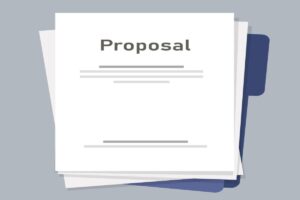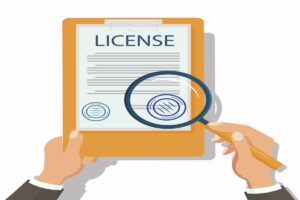As a licensed attorney, you are subject to various rules and laws that govern your profession, which include the Texas Disciplinary Rules of Professional Conduct and the Texas Rules of Disciplinary Procedure. You may face disciplinary action before the State Bar of Texas if you violate any of those rules or laws. If that agency finds that you committed a violation, like being arrested and/or convicted of a crime, you can face potentially severe sanctions that may permanently impact your license and career. Therefore, you need strong legal representation during these proceedings to protect your livelihood and professional future. A law license defense lawyer can represent you before the State Bar of Texas in disciplinary proceedings and help avoid or mitigate the potential sanctions you may face.
The impact of a DWI arrest and conviction in Texas is significant, no matter who you are. However, if you are a licensed professional, the consequences for your personal and professional life can be particularly severe. Not only will you face the criminal penalties tied to a DWI arrest, charge, and conviction, but you likely will face disciplinary proceedings as a result. As a lawyer, the State Bar of Texas holds you to a higher standard than other individuals, which means that a DWI is likely to hurt your career, at least temporarily.
The Texas Disciplinary Rules of Professional Conduct
The Preamble to the Texas Disciplinary Rules of Professional Conduct states that lawyers must “maintain the highest standards of ethical conduct.” It further states that “[a] lawyer’s conduct should conform to the requirements of the law, both in professional service to clients and in the lawyer’s business and personal affairs.”
Rule 8.04 specifically deals with lawyer misconduct. Rule 8.04(a)(2) states that a lawyer may not “commit a serious crime or commit any other criminal act that reflects adversely on the lawyer’s honesty, trustworthiness or fitness as a lawyer in other respects.” A “serious crime” includes any felony involving moral turpitude.
Additionally, the commentary to Rule 8.04 states that:
“Traditionally in this state, the distinction has been drawn in terms of those crimes subjecting a lawyer to compulsory discipline, criminal acts relevant to a lawyer’s fitness for the practice of law, and other offenses . . . In addition, although a lawyer is personally answerable to the entire criminal law, a lawyer should be professionally answerable only for criminal acts that indicate a lack of those characteristics relevant to the lawyer’s fitness for the practice of law. A pattern of repeated criminal acts, even ones of minor significance when considered separately, can indicate indifference to legal obligations that legitimately could call a lawyer’s overall fitness to practice into question.”
These rules of professional conduct come into play when a licensed attorney is arrested, charged, and/or convicted of DWI. To some degree, DWI could indicate a lawyer’s issues with substance abuse that may impair his or her ability to practice law. Likewise, repeated DWI incidents also could indicate a substance abuse problem that affects a lawyer’s fitness to practice law.
The Texas Rules of Disciplinary Procedure
The Texas Rules of Disciplinary Procedure also guide the sanctions that the State Bar of Texas should impose on attorneys who violate the Texas Disciplinary Rules of Professional Conduct and other laws. While these guidelines do not bind the State Bar, they provide a useful framework for attorneys to determine the probable consequences of different violations and to promote consistency in the sanctions issued for violations.
Rule 15.06(A) addresses the appropriate sanctions for failure to maintain personal integrity, which, absent aggravating or mitigating circumstances, are generally appropriate in cases involving the commission of a criminal act that “reflects adversely on the Respondent’s honesty, trustworthiness, or fitness as a lawyer in other respects.” These are the sanctions most likely implicated in the case of a DWI charge.
The rule goes on to list the type of circumstances that typically would justify disbarment, suspension, public reprimand, and private reprimand. While a single DWI would not likely result in disbarment, which is reserved for far more serious crimes, suspension may be appropriate. Rule 15.06(A)(2) states that:
Suspension is generally appropriate when:
(a) a Respondent knowingly engages in criminal conduct that does not contain the elements listed in Guideline 15.06(A)(1) and that seriously adversely reflects on the Respondent’s fitness to practice law; or
(b) knowingly engages in conduct[ing] involving the failure to maintain personal integrity and causes injury or potential injury to others or the legal system.
Reprimands primarily exist as sanctions where the attorney’s conduct is negligent rather than intentional.
Rule 15.09 – Aggravating and Mitigating Circumstances
Rule 15.09 provides for aggravating and mitigating circumstances that the State Bar may consider in determining the sanctions that an attorney receives for a DWI.
Rule 15.09(B) sets forth aggravating factors that the State Bar may consider as justification to increase the sanctions that an attorney receives in a disciplinary case, as follows:
- prior disciplinary record, including private reprimands;
- dishonest or selfish motive;
- a pattern of misconduct;
- multiple violations;
- bad faith obstruction of the disciplinary proceeding by intentionally failing to comply with rules or orders of the disciplinary authority or uncooperative conduct during proceedings;
- submission of false evidence, false statements, or other deceptive practices during the disciplinary process; refusal to acknowledge wrongful nature of conduct;
- vulnerability of victim;
- substantial experience in the practice of law;
- indifference to making restitution;
- illegal conduct, including that involving the use of controlled substances; or
- unsuccessful participation in the Grievance Referral Program.
Rule 15.09(C) sets forth mitigating factors that the State Bar may consider in reducing the sanctions that an attorney receives in a disciplinary case, as follows:
- absence of a prior disciplinary record; absence of a dishonest or selfish motive;
- personal or emotional problems; timely good faith effort to make restitution or to rectify consequences of misconduct;
- full and free disclosure to disciplinary authority or cooperative conduct during proceedings;
- inexperience in the practice of law;
- character or reputation;
- physical disability suffered by the Respondent at the time of the misconduct that caused or contributed to the misconduct;
- mental disability or chemical dependency including alcoholism or drug abuse when:
- there is medical evidence that the Respondent is affected by a chemical dependency or mental disability;
- the chemical dependency or mental disability caused the misconduct;
- the Respondent’s recovery from the chemical dependency or mental disability is demonstrated by a meaningful and sustained period of successful rehabilitation; and
- the recovery arrested the misconduct and recurrence of that misconduct is unlikely;
- delay in disciplinary proceedings;
- imposition of other penalties or sanctions;
- remorse; or
- remoteness of prior sanctions.
Click to contact our professional license defense lawyers today
We Will Represent Your Interests Before the State Bar of Texas
We know how important it is for you to maintain your law license and continue to practice law. We aim to help you handle any disciplinary proceedings and minimize or avoid any resulting sanctions. The experienced law license defense lawyers at Bertolino LLP, will advocate on your behalf to protect your license during your disciplinary proceedings. Call us at (512) 515-9518 or contact us online.
Call or text (512) 476-5757 or complete a Case Evaluation form





